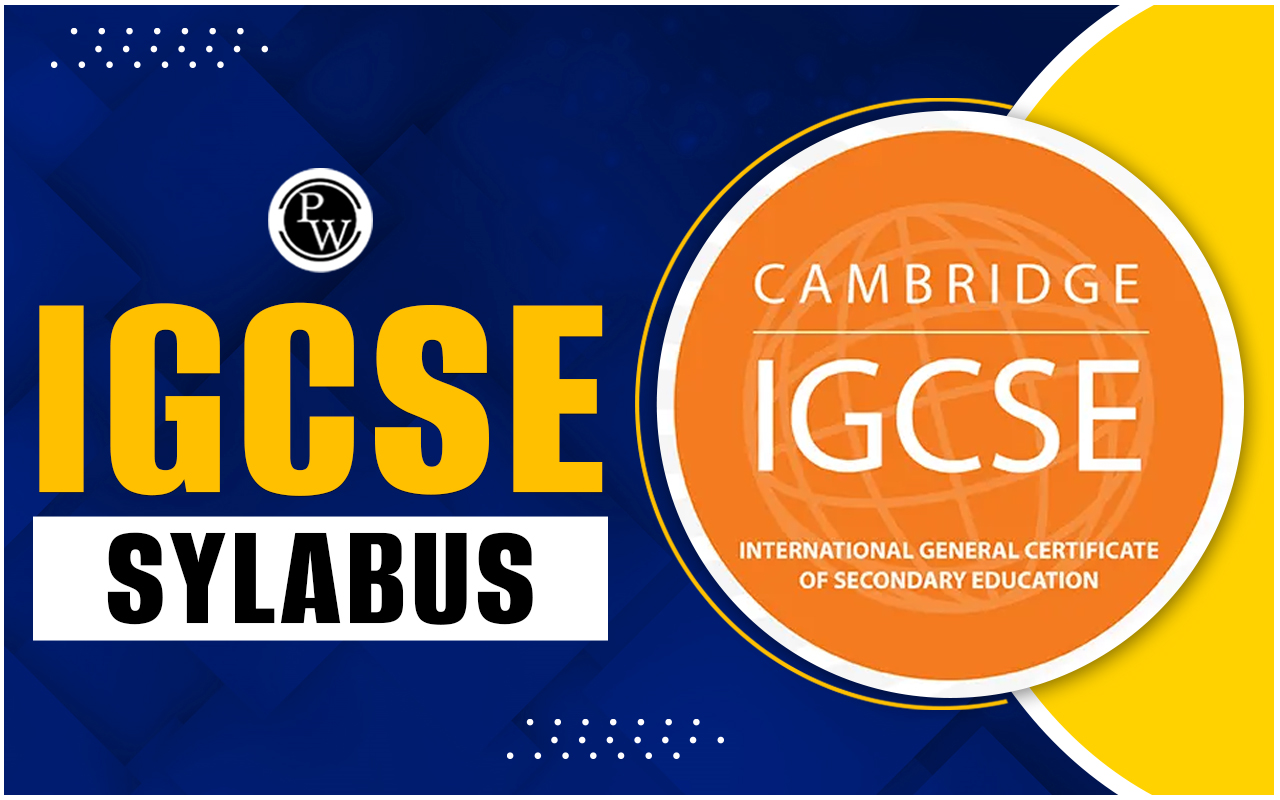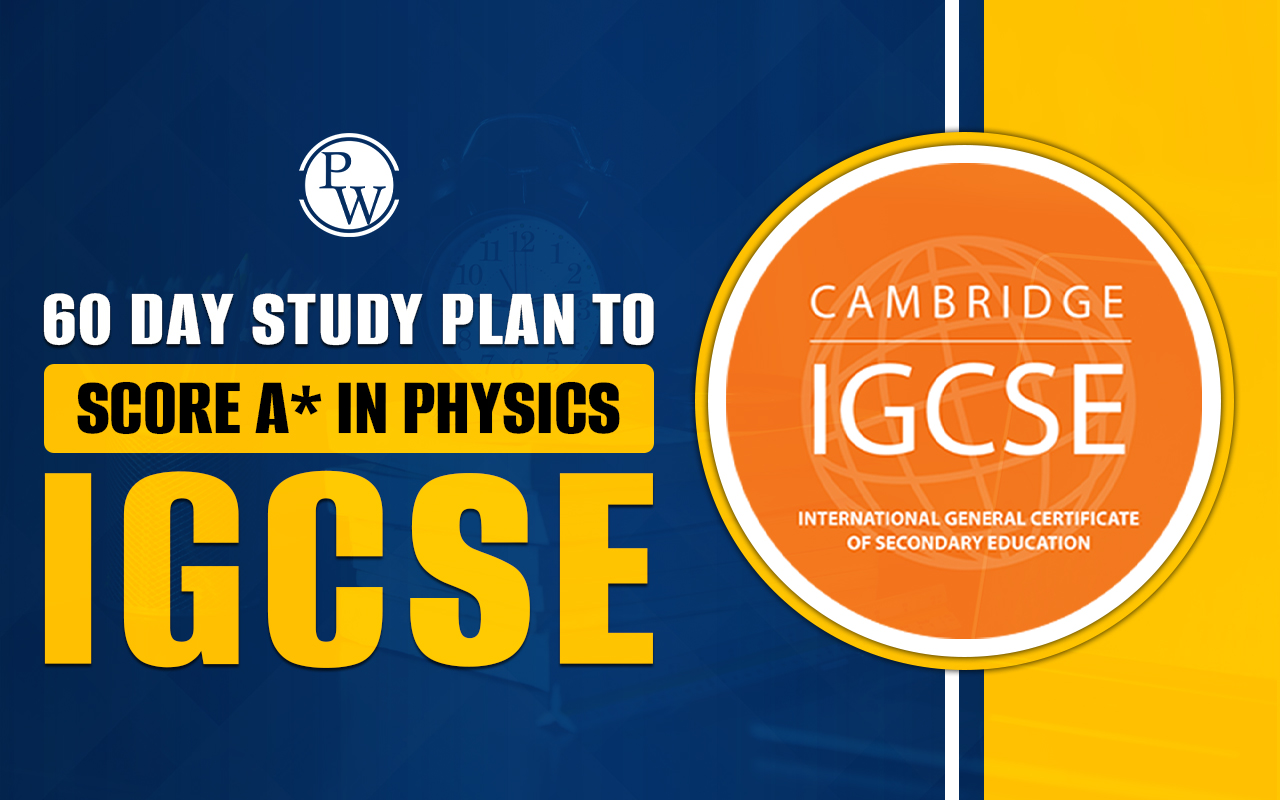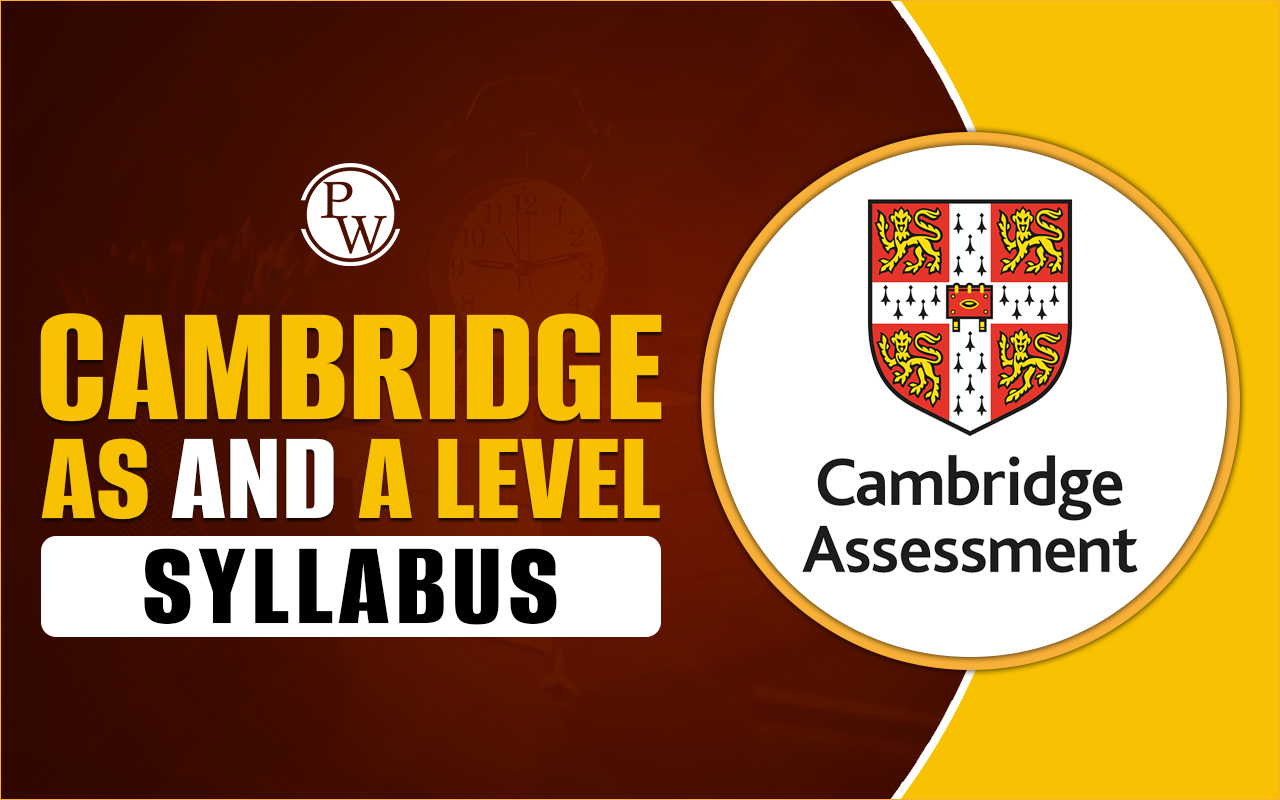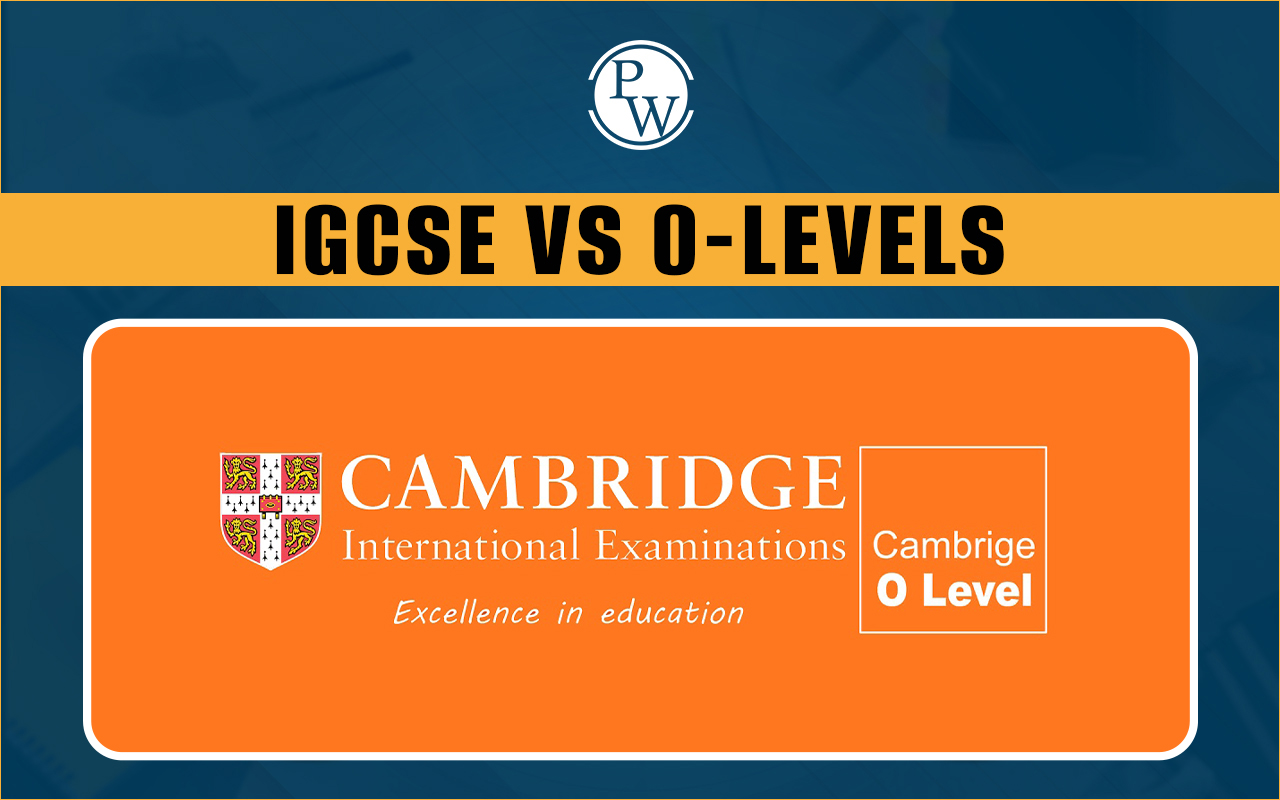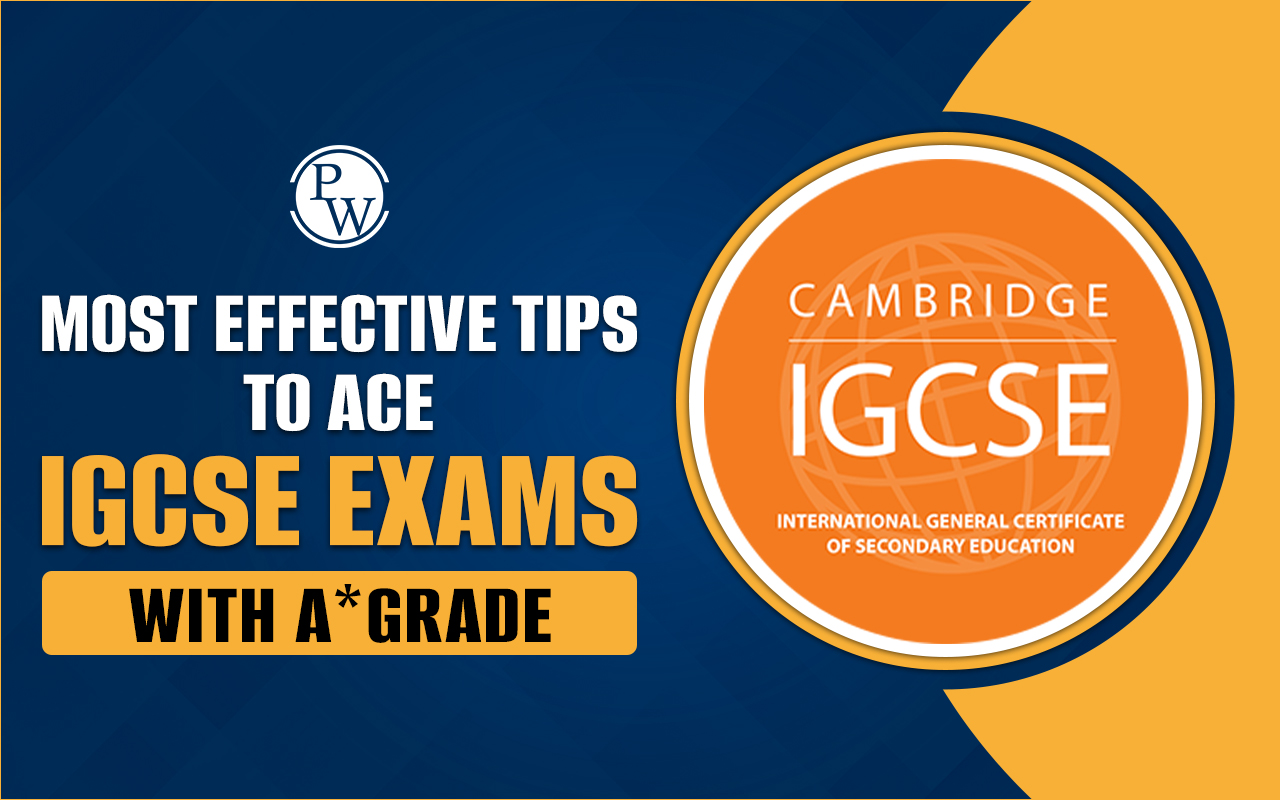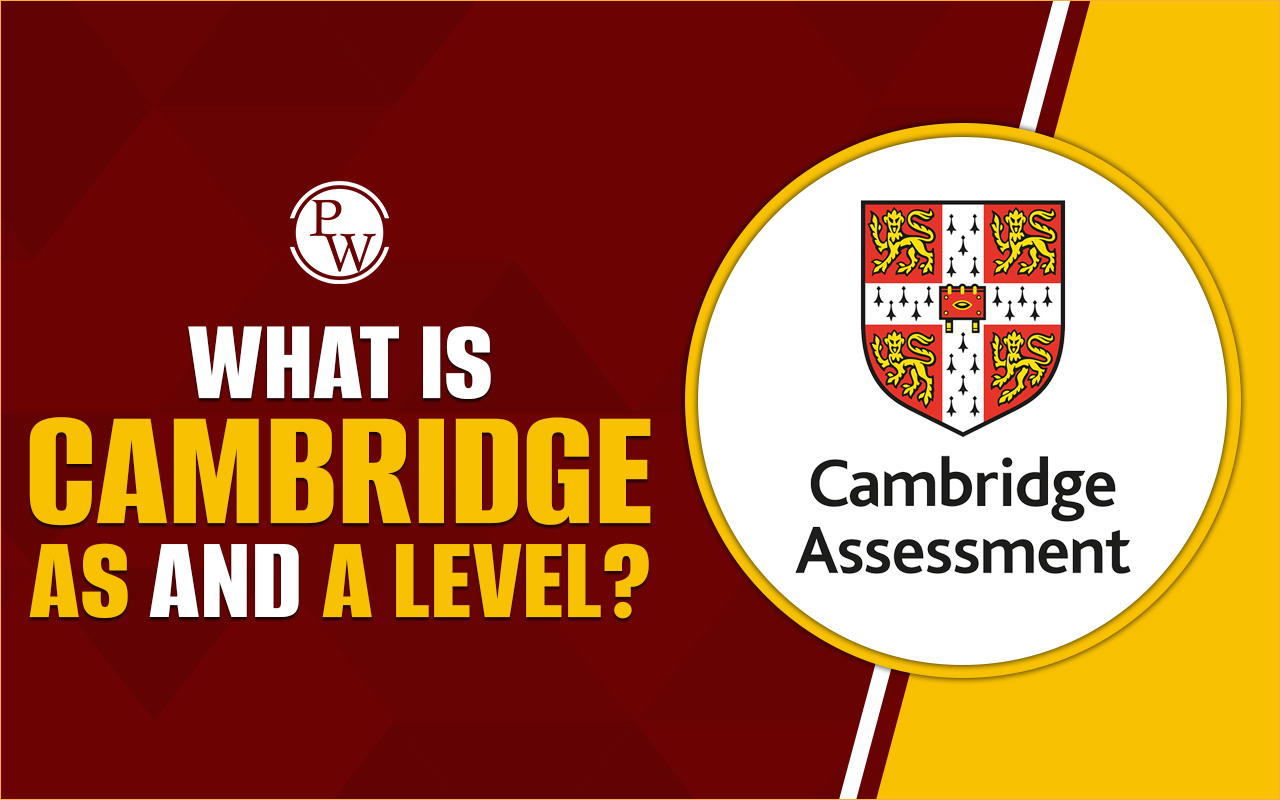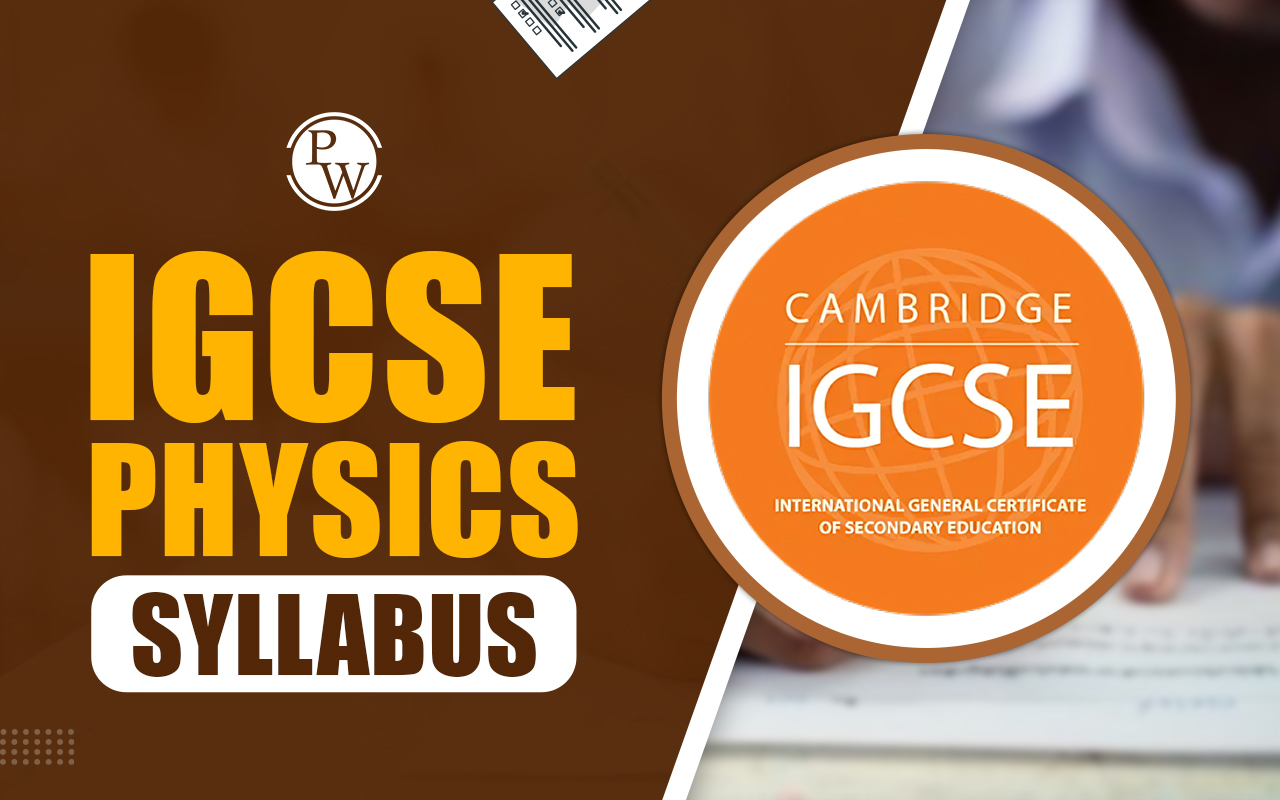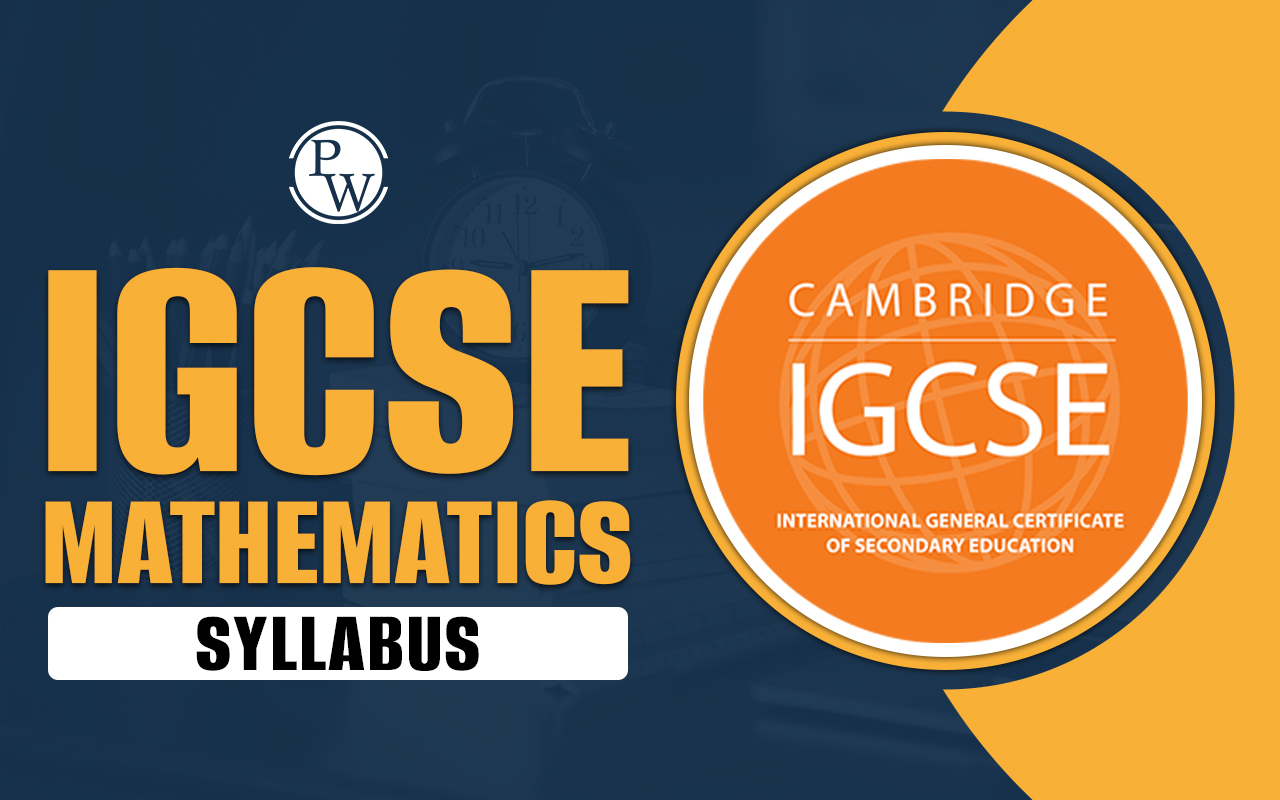
IGCSE vs ICSE : ICSE and IGCSE are two of the most popular examinations for students enrolling in schools. The Indian Certificate of Secondary Education (ICSE) is an examination conducted by the Council for the Indian School Certificate Examinations (CISCE). It offers students a comprehensive curriculum that emphasizes in-depth understanding of subjects such as mathematics, science, and languages, while also integrating Indian culture and values. This rigorous approach provides students with a strong academic foundation, preparing them for higher education, especially within India.
IGCSE (International General Certificate of Secondary Education) is an internationally recognized qualification offered by Cambridge Assessment International Education, designed for grade 9th and 10th students. It provides a flexible curriculum that encourages critical thinking, problem-solving, and analytical skills. IGCSE is ideal for students who aim to study abroad or pursue a global academic career, with a wide range of subject choices that cater to diverse academic interests. Both the ICSE and IGCSE examinations have unique teaching methods, exam structures, and subject offerings, which significantly impact the student’s learning experience. Here we will compare Cambridge IGCSE and ICSE to help the students and parents make informed decisions about which option best suits the student’s academic goals and long-term aspirations.IGCSE vs ICSE Overview
Both qualifications cater to different learning styles, so students and parents should choose based on their long-term academic and career goals. A detailed comparison is provided below for review.| IGCSE vs ICSE Overview | ||
| Exam | IGCSE | ICSE |
| Offered by | Cambridge Assessment International Education (CAIE) and other boards like Pearson Edexcel. | Council for the Indian School Certificate Examinations (CISCE) in India |
| Recognition | Globally recognized qualification, popular in many countries | Primarily followed in Indian and some abroad schools |
| Curriculum | Wide range of subject choices (over 70 subjects) to cater to diverse interests | Focuses on a broad range of subjects, including languages, sciences, mathematics, and social sciences |
| Assessment | Exam-based with some practical and coursework components | Combination of external exams and internal coursework |
| Grading Scale | Grading scale from A* (highest) to G (lowest). A* to C considered passing grades | Percentage-based grading system; minimum passing percentage required for each subject |
| Examinations | In the first year of IGCSE, exams are conducted internally by schools, and at the end of the two-year course, Cambridge conducts an external examination that assesses the entire syllabus. | ICSE exams are conducted typically in February/March, and assess the syllabus covered throughout the year. |
| Results Release | IGCSE exams are held three times a year, with results typically released in August, January, and May, following the May/June, October/November, and March exam series. | ICSE exams are conducted once a year, usually in February/March, with results typically released in May/June. |
| Grades | Specifically designed for grade 9th and 10th students, IGCSE focuses on preparing students for international education | ICSE is structured for students from class 1 to 10, but the official board exams are conducted for class 10 students. The curriculum and assessments are designed to prepare students for Indian higher education. |
| Subject Criteria | IGCSE offers no criteria for a maximum or minimum number of subjects. Students can choose from a wide range of over 70 subjects, depending on their interests and career aspirations | ICSE has a more structured approach. Students are required to study specific subjects, such as English, Mathematics, Science, and the Indian language. |
| Post-IGCSE Preparation | IGCSE is designed to prepare students for further international qualifications, such as AS and A Levels or the International Baccalaureate Diploma Programme (IBDP) | ICSE prepares students primarily for further education in grades 11 and 12, offering a strong academic foundation across core subjects. This prepares them for future competitive exams such as JEE or NEET during higher secondary schooling. |
| Number of Schools | IGCSE is offered by over 10,000 schools in more than 160 countries globally, with around 650 schools in India alone. | ICSE (under CISCE) is conducted in over 2,750 schools across India and a few international schools. |
Difference Between IGCSE and ICSE
Students must go through the difference between IGCSE and ICSE before choosing any of these qualifications. Below are a few parameters that will help you to understand the key differences between IGCSE and ICSE.Meaning of IGCSE and ICSE
IGCSE (International General Certificate of Secondary Education) is a globally recognized educational qualification offered by Cambridge Assessment International Education and other boards. It is typically designed for students in grades 9th and 10th and focuses on international education, promoting global understanding. ICSE (Indian Certificate of Secondary Education) is an examination conducted by the Council for the Indian School Certificate Examinations (CISCE). It is widely recognized across India and abroad for its academic rigour and detailed curriculum.Assessment Techniques for IGCSE and ICSE
IGCSE employs a range of assessment techniques, combining exams with coursework. Students are evaluated not just on the final exam but also through projects, practicals, and presentations, which allow for the development of critical thinking and problem-solving skills. The assessment is more flexible and can vary depending on the subjects chosen, offering core and extended papers to match the student's ability level. ICSE, on the other hand, relies heavily on a final examination-based assessment. Students must prepare for written exams at the end of the academic year, which form the basis of their overall grade. While some practical components exist for subjects like science, the emphasis is largely on traditional exam-based assessments, making preparation more exam-centric. Subject Choices Flexibility in IGCSE and ICSE IGCSE offers unparalleled flexibility in subject choices. Students can choose from over 70 subjects, including English, Mathematics, Sciences, Humanities, Business, Arts, and more. This flexibility allows students to tailor their studies to suit their interests, future career goals, or higher education aspirations. Students can mix and match subjects, even across different disciplines, giving them broad exposure and the opportunity to explore their strengths in different fields. ICSE, while offering a broad curriculum, has a more structured approach when it comes to subject selection. Students are required to study core subjects like English, Mathematics, and Science, alongside Indian languages and Social Studies. There is less flexibility in choosing elective subjects compared to IGCSE. However, ICSE does offer options in additional subjects such as Computer Applications, Physical Education, and Environmental Science, though within a more rigid framework.Learning Approach in IGCSE and ICSE
IGCSE encourages a student-centred learning approach, promoting independent study, research, and critical analysis. The curriculum is designed to make students think beyond textbooks, enabling them to explore concepts in depth. This approach fosters a global perspective, equipping students with the skills necessary for adapting to diverse academic environments, especially in international universities. ICSE, in contrast, follows a more traditional, teacher-led learning model. The curriculum is detailed, and students are expected to memorize and understand complex concepts thoroughly. The approach is highly academic, and the system encourages discipline and focus on comprehensive subject mastery. While creativity and critical thinking are part of the curriculum, the emphasis remains on rigorous academic achievement.Global Recognition
IGCSE is a broad and balanced curriculum available in approx 6000 schools in 145 countries. This makes it a great choice for students who want to study internationally. The IGCSE curriculum is designed to match the standards of universities worldwide, making the transition smoother for students applying abroad. ICSE, though recognized globally, is often a better fit for students who want to continue their studies in India. ICSE students are well-regarded by Indian universities, but they may need to meet extra requirements for studying abroad, depending on the course and country.Focus on Indian Culture
ICSE has a strong focus on Indian culture and values. The curriculum includes Indian languages and subjects that provide an in-depth understanding of Indian history, geography, and culture. This makes ICSE a preferred option for parents and students who wish to remain closely connected to their Indian roots while ensuring academic rigour. IGCSE, being internationally oriented, does not emphasize Indian culture specifically. Instead, it offers subjects with a more global perspective. While students can still choose Indian languages and study Indian history, the curriculum is more diverse, focusing on issues of global importance.Preparation for Future Education
IGCSE prepares students for a wide range of future academic paths, particularly international universities. The curriculum is designed to develop independent thinking, research skills, and the ability to work on complex projects, which are essential for higher studies, especially in fields like engineering, business, or liberal arts. ICSE prepares students for rigorous higher education within India. Its curriculum focuses on developing strong foundational knowledge in core subjects like mathematics and sciences, which are crucial for competitive exams and entrance tests for Indian universities. It is highly respected in fields like medicine, law, and engineering.Grading System in IGCSE vs ICSE
IGCSE uses a grading scale that ranges from A* to G, with A* being the highest grade and G being the lowest. There are also two levels of exams: Core and Extended . Core papers target students aiming for grades C to G, while Extended papers are for those aiming for grades A* to E. This dual system allows flexibility and caters to students with varying academic abilities, enabling them to take exams at a level that suits their strengths. ICSE, on the other hand, follows a percentage-based grading system. Students receive marks out of 100 in each subject, and the final score is the percentage they have earned. Unlike IGCSE, ICSE does not offer different levels for exam difficulty, meaning all students sit the same standardized exams regardless of their performance level throughout the year. The ICSE system emphasizes achieving high scores, with a minimum pass percentage required for each subject.Focus on Skill Development in IGCSE and ICSE
IGCSE places a strong emphasis on developing critical life skills, including communication, analytical thinking, research, and problem-solving. The coursework and practical components of IGCSE subjects require students to work independently, collaborate in groups, and manage their time effectively. These skills are highly valued in both academic and professional settings, particularly for students looking to pursue higher education abroad. ICSE, while academically rigorous, is more focused on developing a solid foundation of knowledge in core subjects. Although students in ICSE develop important skills like memorization, discipline, and the ability to handle a challenging academic workload, the qualification places less emphasis on broader skill development, such as research or problem-solving, compared to IGCSE. However, ICSE students are often well-prepared for competitive exams and future academic challenges within the Indian education system.Teacher-Student Interaction in IGCSE and ICSE
IGCSE schools often emphasize personalized learning and teacher-student interaction. The smaller class sizes and focus on individual learning styles in many IGCSE schools provide students with more opportunities for one-on-one support and feedback. Teachers play a facilitative role, guiding students through inquiry-based learning and encouraging independent thought. This interaction helps students to feel more involved in their learning process. ICSE schools, while also offering a strong teacher-student relationship, may have larger class sizes, depending on the school. ICSE emphasizes teacher-led instruction, and students are expected to follow a structured academic path with more focus on content mastery. Although interaction is encouraged, the focus is often on covering a vast syllabus, leaving less room for individualized learning compared to IGCSE.Co-curricular and Extracurricular Opportunities for IGCSE vs ICSE
IGCSE encourages a holistic approach to education, which includes a wide range of co-curricular and extracurricular activities. Many IGCSE schools offer activities such as sports, drama, debate, and community service. These activities are often integrated into the curriculum and contribute to the development of a well-rounded individual. The international nature of IGCSE also means students may participate in global competitions or exchange programs, providing them with a wider worldview. ICSE also provides a range of extracurricular opportunities, though these can vary depending on the school. ICSE schools offer activities such as sports, music, and arts, but there tends to be a stronger emphasis on academic achievement. While extracurricular activities are encouraged, they may not be as integrated into the curriculum as in IGCSE. Nonetheless, ICSE students still benefit from a well-rounded education that includes cultural and sporting events.IGCSE vs ICSE FAQs
Which qualification focuses more on practical learning, IGCSE or ICSE?
IGCSE focuses more on practical learning through projects, coursework, and hands-on assessments, while ICSE emphasizes theoretical learning with practical components mainly in science subjects.
Can students switch from ICSE to IGCSE or vice versa?
Yes, students can switch between ICSE and IGCSE, though it may require adjustments to the new curriculum. Parents should consult schools to understand the best time to make the switch.
How do IGCSE and ICSE prepare students for competitive exams like JEE/NEET?
ICSE is more aligned with the Indian education system, making it better suited for competitive exams like JEE/NEET. IGCSE provides a broader international curriculum that may require extra preparation for these exams.
Which qualification offers a greater focus on Indian languages and culture, IGCSE or ICSE?
ICSE places a stronger emphasis on Indian languages and culture as part of its curriculum, with subjects dedicated to Indian history, languages, and values. IGCSE offers Indian languages as an option but is more globally oriented.
Are extracurricular activities more integrated into IGCSE or ICSE?
IGCSE tends to integrate extracurricular activities more into its curriculum, offering global exposure through programs like Model United Nations, international competitions, and exchange programs. ICSE also offers extracurriculars but focuses more on academic achievements.
🔥 Trending Blogs
Talk to a counsellorHave doubts? Our support team will be happy to assist you!

Check out these Related Articles
Free Learning Resources
PW Books
Notes (Class 10-12)
PW Study Materials
Notes (Class 6-9)
Ncert Solutions
Govt Exams
Class 6th to 12th Online Courses
Govt Job Exams Courses
UPSC Coaching
Defence Exam Coaching
Gate Exam Coaching
Other Exams
Know about Physics Wallah
Physics Wallah is an Indian edtech platform that provides accessible & comprehensive learning experiences to students from Class 6th to postgraduate level. We also provide extensive NCERT solutions, sample paper, NEET, JEE Mains, BITSAT previous year papers & more such resources to students. Physics Wallah also caters to over 3.5 million registered students and over 78 lakh+ Youtube subscribers with 4.8 rating on its app.
We Stand Out because
We provide students with intensive courses with India’s qualified & experienced faculties & mentors. PW strives to make the learning experience comprehensive and accessible for students of all sections of society. We believe in empowering every single student who couldn't dream of a good career in engineering and medical field earlier.
Our Key Focus Areas
Physics Wallah's main focus is to make the learning experience as economical as possible for all students. With our affordable courses like Lakshya, Udaan and Arjuna and many others, we have been able to provide a platform for lakhs of aspirants. From providing Chemistry, Maths, Physics formula to giving e-books of eminent authors like RD Sharma, RS Aggarwal and Lakhmir Singh, PW focuses on every single student's need for preparation.
What Makes Us Different
Physics Wallah strives to develop a comprehensive pedagogical structure for students, where they get a state-of-the-art learning experience with study material and resources. Apart from catering students preparing for JEE Mains and NEET, PW also provides study material for each state board like Uttar Pradesh, Bihar, and others
Copyright © 2026 Physicswallah Limited All rights reserved.
